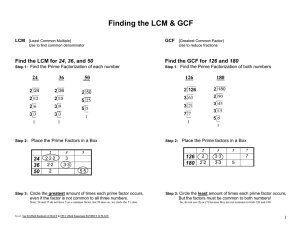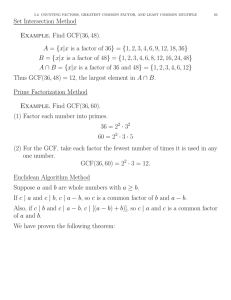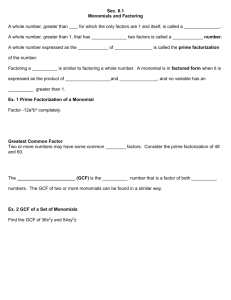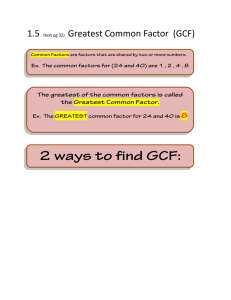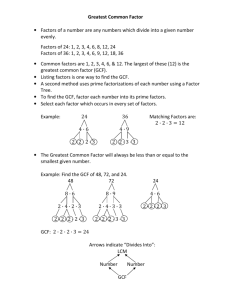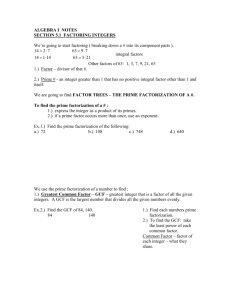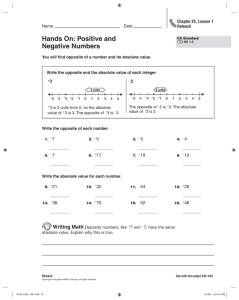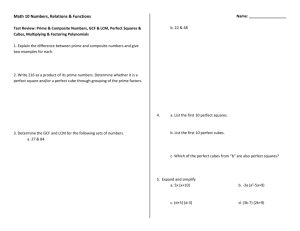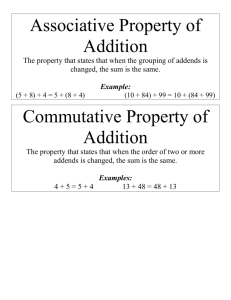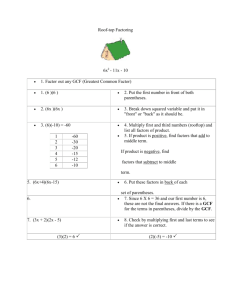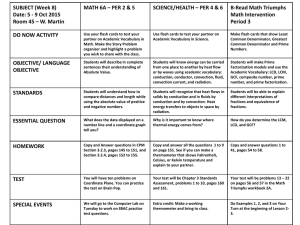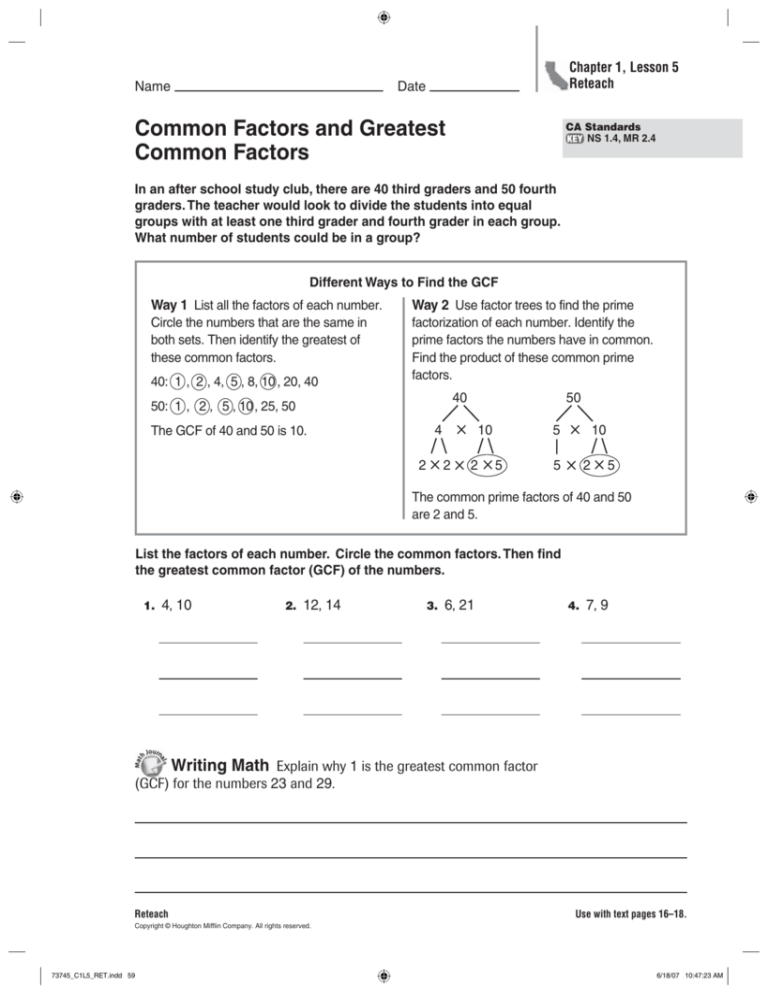
Name
Chapter 1, Lesson 5
Reteach
Date
Common Factors and Greatest
Common Factors
CA Standards
NS 1.4, MR 2.4
In an after school study club, there are 40 third graders and 50 fourth
graders. The teacher would look to divide the students into equal
groups with at least one third grader and fourth grader in each group.
What number of students could be in a group?
Different Ways to Find the GCF
Way 1 List all the factors of each number.
Circle the numbers that are the same in
both sets. Then identify the greatest of
these common factors.
40: 1 , 2 , 4, 5 , 8, 10 , 20, 40
Way 2 Use factor trees to find the prime
factorization of each number. Identify the
prime factors the numbers have in common.
Find the product of these common prime
factors.
40
50: 1 , 2 , 5 , 10 , 25, 50
The GCF of 40 and 50 is 10.
4 × 10
2 × 2 × 2 ×5
50
5 × 10
5 × 2 ×5
The common prime factors of 40 and 50
are 2 and 5.
List the factors of each number. Circle the common factors. Then find
the greatest common factor (GCF) of the numbers.
1.
4, 10
2.
12, 14
3.
6, 21
4.
7, 9
Writing Math Explain why 1 is the greatest common factor
(GCF) for the numbers 23 and 29.
Reteach
Use with text pages 16–18.
Copyright © Houghton Mifflin Company. All rights reserved.
73745_C1L5_RET.indd 59
6/18/07 10:47:23 AM

